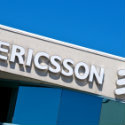Ericsson Problem Leaves Millions Without Smartphone Services
Swedish vendor says it is working with customers to identify root causes and solve the problem.

A problem with Ericsson's network technology has triggered service outages in countries including the UK and Japan, with millions of smartphone users unable to access the Internet on Thursday because of a software issue with Ericsson's systems.
Customers of the UK's O2 and Japan's SoftBank were reportedly left without access to data services. Telefónica subsidiary O2 blamed the outage on a "global software issue in the system" of one of its global suppliers, according to the Financial Times, while Japan's SoftBank Corp. was said to be looking into the cause of the disruption after apologizing on its website to customers.
Ericsson AB (Nasdaq: ERIC) subsequently confirmed to Light Reading that its systems were at fault. "We are aware of the issue and are working together with our customers to solve it as soon as possible," said a spokesperson for the Swedish vendor, without providing further details. "We are working with customers to identify root causes."
The disruption may have had some impact on SoftBank's share price, which fell nearly 5% in Tokyo to close at 9,120 Japanese yen ($80.84) on Thursday. Telefónica's share price, meanwhile, was down about 1.4% in Madrid at the time of writing.
However, global stock markets were today rocked by reports that US authorities have detained Meng Wanzhou, the chief financial officer of Huawei, while she was changing flights in Canada. (See China Slams Huawei CFO's Arrest, Huawei 'Not Aware of Any Wrongdoing'.)
Ericsson's chief rival in global equipment markets, Huawei Technologies Co. Ltd. has been under investigation by the US Department of Justice for breaching sanctions against Iran.
In an update for customers published on Twitter this morning, O2 said: "One of our third-party suppliers has identified a software issue in their system. Our technical teams are working extremely hard to resolve this. We'd encourage you to use WiFi wherever you can and we are really sorry."
That update followed an earlier Twitter statement in which O2 said the issue had "impacted mobile services globally."
For all the latest news from the wireless networking and services sector, check out our dedicated mobile content channel here on Light Reading.
Besides illustrating just how much disruption a network problem can cause, the incident is an embarrassing and potentially costly one for Ericsson, which is trying to build a reputation for the quality of its network technology as customers prepare to invest in next-generation 5G networks.
It risks having a financial impact on Ericsson as operators affected by the outage demand some form of compensation from the Swedish vendor for the disruption to their business.
Network outages affecting millions of smartphone customers in various countries would also carry an economic cost: Consumers and businesses are increasingly dependent on smartphone connectivity as they go about their day-to-day activities.
Ericsson's business has been on the road to recovery this year after racking up losses in 2017, when competition from Chinese vendors and a downturn in major equipment markets were blamed for its weak performance. (See Emboldened Ericsson Lifts Sales Target.)
Under CEO Börje Ekholm, who took charge in early 2017, Ericsson has sold some media and cloud hardware assets and laid off thousands of employees in a bid to restore profitability and narrow its focus.
Despite today's problems, the company's share price was trading up 1.6% in Stockholm at the time of publication.
— Iain Morris, International Editor, Light Reading
About the Author(s)
You May Also Like




_International_Software_Products.jpeg?width=300&auto=webp&quality=80&disable=upscale)







